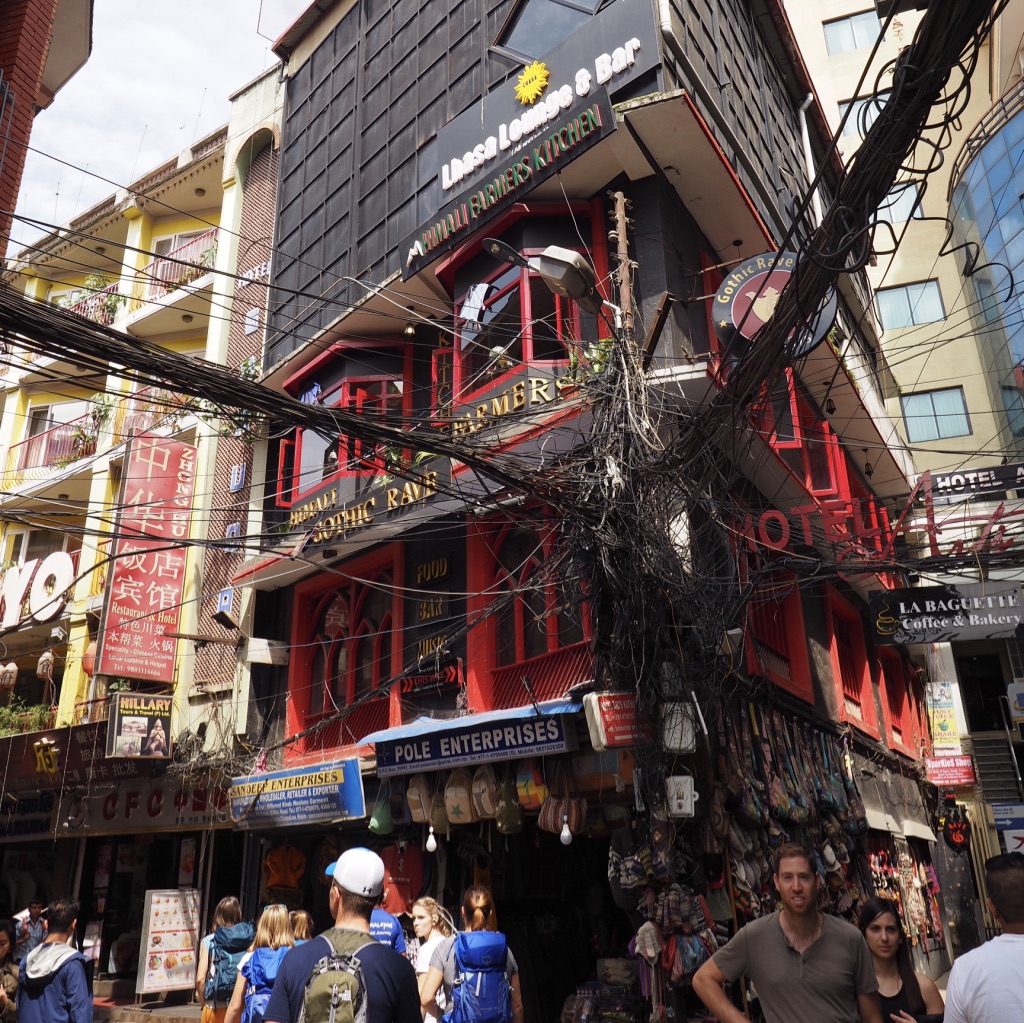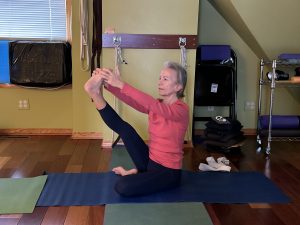The level of structure that people seek always is in direct ratio to the amount of chaos they have inside. Tom Robbins, Skinny Legs and All
As with any behaviour, in its extreme, control becomes dysfunctional and even delusional. For me, the clearest memory of this occurred when I first left home to attend university. Until one of my male friends said to me, “Quit hitting me,” I was completely unaware that when I wanted someone’s attention I gave them what I thought was a “love tap” on the arm.
After some investigation of my reasons for doing this, I also discovered that besides seeking attention, my lack of physical contact with close family and friends triggered this unconscious habit. What I really wanted was TLC, but instead of initiating or asking for it, I was engaging in a behaviour whose consequence was more likely to alienate and push people away.
Thank goodness for the one person who told me the truth, which led me to stop the unconscious inappropriate habit and replace it with appropriate actions. If I had continued with the “love tap” behaviour for the next 40 years of my life, very likely it would have morphed into more violent actions, and I would still be deluding myself about what love is or is not.
Inadvertently, our delusional thinking often leads us to counter what we perceive as chaos with control. We attempt to control the economy, the environment, our children, our partners, and those who feel, think and believe differently than us. This high need for control is a red flag signalling our insecurity, which has a reason for existing. Applied Behaviour Analysis teaches us that every behaviour has a function as well as a consequence (result) that can reward (reinforce) or replace that behaviour.
Fortunately, my student friend from university triggered a replacement behaviour. Now, when I touch people with my hand, I think of this touch as channelling my TLC and love into them. The consequence of this new behaviour is radically different. Try it for yourself, and see what results you incur.
Ultimately, our insecure need for control evolves into the act of manipulation. Only a couple of years after my university event, another friend called me on my manipulating behaviour. This was the next big lesson I learned as a young adult — did I want to be seen as a manipulator? I remember how my heart shrunk when I heard the word in reference to me. Although, my inner navigator was urging me to choose another way, it took many years before I fully understood what that new path entailed. Which brings me to today and the choice being faced by all of global society — do we want to go through life manipulating everything and everyone in order to get our needs met?
If you are denying whether you internalized manipulation, have you ever wondered how our infant children become expert manipulators by the time they hit their “terrible twos?” Well, it’s because children are great observers. At this “tender” age, they are not great interpreters of behaviour but they witness the constant manipulation of and by others and the ensuing results. And just like their parents, teachers, me, etc., if it gets them what they want, they use it until they learn otherwise.
Do we want to go through life manipulating everything and everyone in order to get our
needs met?
Falling down the rabbit hole of that question led me to the next big life question — what antecedent led so many to feel so insecure that we developed obsessive control habits? An antecedent is an event preceeding the occurrence of a behaviour that, due to the behaviour’s consequences (what followed after), reinforced a habit. Antecedent, behaviour and consequence (ABC) are the three “pivotal parts” of any behaviour. ABC is considered the best practice for analyzing challenging or dysfunctional behaviour in order to get to the source of why it exists and to replace it with healthy functioning.
In my case and particularly in my youth, ABC was not practiced and instead manipulation was rewarded. In fact, well over a decade has passed since I began the practice of releasing desire, ambition and goals, all of which required me to manipulate my environment and the people within it to get what I wanted.
Optimistically, over the past 50 years, more and more children and adults trained in ABC, and we witness these increasingly healthier consequences — random acts of kindness to strangers, zero tolerance for bullying in many public schools, the diminishing conspiracy of silence around sexual abuse, greater understanding that homelessness is rooted in mental illness, poverty and a failed social network system not lazyness and irresponsibility.
Nonetheless, awakening global consciousness to its ABCs, particularly relative to internal politics and international governance, feels increasingly paramount. So, returning back to the basics — why we behave the way we do — seems like a necessary first step.
6 Reasons for Behaviour:
- To obtain a desire, goal, ambition, need — preferred item or activity.
- To escape or avoid an unwanted setting or activity.
- To get attention.
- To communicate, particularly when communication skills are limited.
- To self-stimulate, i.e., cigarette smoking that reinforces relaxation.
- To control or have power over something or someone.
When we understand the root cause or antecedent of our own dysfunctional behaviour, we can then replace the dysfunction with actions that serve us and others.
As such, beginning the practice of releasing desire, ambition and goals led me to question the source of my own insecurity. In my youth I recognized this as a desire to be loved. As time passed and life’s lessons unfolded, insecurity took on many masks — the need for more stimulation, more money, more power. Today, releasing desire, ambition and goals means trusting that life is my protector and provider. This trust awakened my innate potential to fully align with life’s emerging possibilities. The consequence … I no longer need to push rocks up-hill or move mountains to realize my gifts and contribute to the well-being of all.
If letting go of your ambitions and desires seems too much for you, then take a smaller step toward relinquishing control as advised by Deepak Chopra.
If you just relinquish the need to defend your point of view,
you will gain access to enormous amounts of energy that
have been previously wasted. Deepak Chopra
That freed energy can be applied in productive ways such as expressing your creative potential. Expressing an opinion has relevance and purpose. Defending an opinion smacks of a need to be right, that is, in control.
What I know to be trues is the more I let go of wasting my energy on defending myself, the more I am able to creatively express myself. Thus, may we feed our creative behaviours and shrink our defensive acts.





